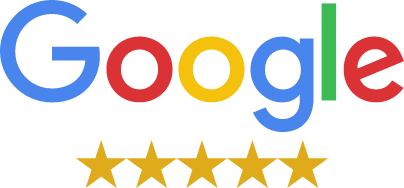The odds are good that writers loathe ChatGPT. But the opposite is true with digital marketers, many of whom are salivating over the possibilities of the AI-empowered language model.
Using natural language processing, ChatGPT analyzes data from search engines, social media, and other sources to generate content ideas, conduct keyword research, and even help with building contextual links. By leveraging the tool’s capabilities, you can save time and stay ahead of the competition.
However, using the tool as your sole source of content generation comes with risks – many of which are still unknown. At the very least, you could face a stiff penalty from Google.
But what if it’s used as a tool to help you create content rather than doing the entire job for you?
That’s the question content curators, clients, and Google are currently wrangling with.
You Still Have to Provide Something of Value!
Launched in November 2022, the artificial intelligence chatbot developed by OpenAI has dominated headlines globally. Even now, it’s hard to go a day without seeing another headline or news story about ChatGPT.
And writers, bloggers, and content creators were among the first to test it out. Users soon came away with a few takeaways.
The primary complaint? The content is good, but … not quite right. Here are a few more initial talking points:
- The repetitiveness of the content is sometimes similar to article spinning in that ChatGPT tends to say the same thing repeatedly, just in slightly different ways. Blog posts often have at least one sentence in every paragraph that summarizes what you’ve written thus far. And multiple posts on a single niche or industry tend to use the same tips, benefits, examples, and even the exact phrasing.
- The facts aren’t always, well, factual. You have to double-check all facts and links used in the AI-generated posts.
- Prompts or instructions are sometimes ignored.
- Information goes through 2021 – meaning, it can’t tell you who won this past Super Bowl, for example.
- Grammar-wise, it’s good, not great. Think B-minus to C-plus “good.”
But don’t be fooled; this is nitpicking.
That’s because these issues can be fixed relatively easily – but you still have to put in the manual labor for every piece of content ChatGPT produces.
And therein lies the heart of the issue: Are you providing something of value? Because if you’re not, you could eventually face a Google penalty.
What Does Google Think of AI-Generated Content?
In a word, “spam.” That was Dan Nguyen of Google’s search quality team’s description in a November 2022 Google Search Central SEO office-hours hangout. (Watch the full video here; skip to the 9:23 mark.)
Nguyen was asked how Google would respond to AI content generators that can scrape and emulate the content from a competitor’s site to outrank them in the search results. Nguyen said Google has algorithms to go after anyone who posts AI-created content from other sites.
Before that, Google’s Search Advocate John Mueller made it clear in an April 2022 office-hours hangout (skip to 22:13) that using AI-generated content goes against Webmaster Guidelines and would be considered spam. And spam, of course, doesn’t rank in Google or anywhere else.
The reason?
The quality isn’t very good compared to 100 percent human-written content. And that’s because, most of the time, the content you get with ChatGPT isn’t adding anything of value to the reader.
In other words, copying and pasting straight from ChatGPT into your website will eventually catch up to you.
However, the tool still has amazing value to content curators and clients. As Mueller also said in his hangout, tools like ChatGPT could evolve in a way that it’s used as a tool to be more efficient in your writing.
And there’s that phrase again: as a tool. That’s the key takeaway regarding machine learning and how it can be ethically used to improve your search rankings.
You still have to do the manual labor!
Say you’ve searched high and low for an affordable SEO agency like SEOTuners to shore up some of the problems you have with your website and optimize it.
Instead, you come up with what seems like a brilliant idea at the time: You’ll get ChatGPT to do the work for you. You type in a few prompts, then wait a few seconds for the tool to finish writing.
The results are probably disappointing.
Sure, it might look OK at first glance, but take a closer look:
- Keywords might not be used at all, or they’re used so often that it’s bordering on keyword stuffing.
- It seems repetitive everywhere – things are summarized that don’t need to be, and entire sentences are reused repeatedly, just written slightly differently each time.
- The copy needs to be longer. Or it’s too long.
In other words, it’s unusable in its current state.
Now, without touching the copy, run it through one of the numerous free AI detectors, and your fears will be confirmed: It’s 100 percent “fake.”
And that goes back to what Google is saying will get you penalized. The copy ChatGPT just produced doesn’t provide value because it needs to be better written and constructed, and it’s hard for readers to find and get usable, relevant information.
Again though, ChatGPT still has its merits.
How to use it as a tool to help, not do all of the work?
To put it bluntly: You’ll have to heavily edit the copy produced by ChatGPT to match the style and tone you want or need. That includes fact-checking and removing all those transitions and summaries, for starters.
You’ll also still need to check the copy for plagiarism, as ChatGPT has been known to copy the content too. Then you’ll want to run it through a grammar checker, many of which are free.
Next, you’ll need to double-check all facts and links that were used.
Finally, once you’ve re-written, edited, and fact-checked all the website content and run it through a plagiarism and grammar checker, you now have something of actual value.
That’s because the content now has your desired voice. It includes the keywords an appropriate number of times. There’s no padding; the writing is tight, concise, and informative.
As for the litmus test? Now run that web page through an AI detector. If you’ve worked to make the content your own, it should show up as 100 percent human.
So Why Hire a Writer?
Everything we’ve discussed also goes for bloggers who feed ChatGPT a bunch of background info and URLs to write a post – just as they would do on their own when researching a topic through search engines. Only instead of reading through and organizing all of the research themselves, ChatGPT does all that in seconds.
However, the writer still has to re-write most, if not all, of the content to match the same style and tone as the writer. And the writer still has to check the grammar and for plagiarism.
So yes, if used as a tool to help the writer, ChatGPT speeds up the process – but manual labor is still required, which circles back to finding an affordable SEO agency like SEOTuners.
What kind of final product do you want?
Think of AI chatbots like a website builder. Yes, anyone can now build a website without coding or programming skills. And yes, some of those website builders are free. Believe it or not, you can create a decent-looking website with those tools.
That said, it’s going to take you twice as long to do all that as it would for a web developer, and the odds are pretty good that it’s not going to look as good or be as functional or as responsive as it would if you had hired a developer to design the site.
The same holds with using ChatGPT as a content creator.
Sure, you can use it as a tool, not as the sole writer, for many of your content needs. But the end result likely won’t be as good as what you were hoping for versus contracting out the work to a writer – even if that writer also used ChatGPT as a tool.
As for saving time? It’ll likely save a professional writer a lot of time to handle your content, but it’s debatable how much time it saves you from going through all those steps yourself to make it something of value.
Blogging and website copy is just a tiny slice of the SEO pie however – it just happens to be the one that’ll get you dinged by Google if you’re not careful. Fortunately ChatGPT holds great value outside of content creation.
How are others using this fantastic tool?
SEO experts are finding innovative new ways to leverage ChatGPT, as they often use the tool differently than an SEO blog writer would.
Here’s what others in the industry are using it for outside of just blog posts and website content:
- Keywords:Conducting keyword research can be time-consuming and complex. However, ChatGPT can analyze search volume, competition, and other relevant factors to provide a potential list of keywords most likely to drive traffic. That said, it’s still wise to double-check that with other keyword analytic tools.
- Build high-quality links: The tool canquickly identify high-ranking sites relevant to your niche. This speeds up the process exponentially – now, you can reach out to these sites to earn backlinks that can help improve your search rankings.
- Analyze your competitors: Armedwith its natural language processing capabilities, ChatGPT can quickly identify keywords your competitors are targeting, analyze their content structure, and even predict their next moves. To be clear though, scraping these sites for this information and then using ChatGPT to produce almost identical (or very similar) copy will eventually be flagged by Google. Instead use this information as a guide for what your competitors are doing well, then follow their lead – only with your branding and flair.
- Structure your content:ChatGPT’s natural language processing (NLP) technology helps it understand and interpret human language. One particularly valuable aspect of NLPs from an SEO standpoint is the ability to analyze user intent and provide guidance on how to structure your content to match that intent. For example, if you own a dog-training business, you could ask ChatGPT what kind of content would rank well, and in turn, it would provide insights valuable to the user, like training videos, tips and tricks blog posts, and breed-specific training guides. It can also suggest how to structure each piece of content, whether a blog post or a video script.
- Headlines, subject lines:Stuck on a headline? Thank God for machine learning, as it can give an indefinite number of topic/headline suggestions. You can ask ChatGPT to provide you with a list of headlines that rank well, but like the content itself, many of those titles won’t rank or grade well in headline-checking tools. Nonetheless, it gives the user an indefinite number of ideas, which can be manually tweaked until you land on the best one.
- Social media posts, ad copy, PPC campaigns, and landing pages:Know what Google doesn’t care about? Your tweets. The same goes for landing pages. You’re not trying to rank your landing pages; instead, you’re hoping your PPC or other paid ad campaign funneled readers to that landing page. The same goes for ad copy in general. With that said, PPC text is a bit different. ChatGPT is amazing for churning out tons of various versions of a headline and its text. However, the same rules apply here for longer text: You still have to put in some manual labor to ensure accuracy and that the headline and text sounds natural and offer something of value.
- Email marketing:Google already has anti-spamming rules and regulations in place; hence, the need for tools that still allow you to send bulk emails safely. That’s because the search engine giant wants to ensure people’s inboxes aren’t flooded daily with unwanted advertisements. ChatGPT doesn’t change any of this. However, you can still use it as the starting point for your email, though you’ll need to heavily revise it afterward. You can also use the tool to develop a strategy for how to write that email. Again, as with any long-form type of content, human oversight is required to clean up the language, tone, style, grammar, and facts.
Like it or not, ChatGPT is just the tip of the AI iceberg. It’s not going anywhere, and, in fact, you should expect updated, more comprehensive versions in the near future.
But like any new technology, it should be used as a tool to improve the final product and streamline the process – not as some kind of robot butler that’ll do all the work for you. That’s because ChatGPT is not enough on its own, which will remain until the technology catches up to human creativity. And even then, you can bet that Google will have another algorithm to ensure you’re not cutting corners.










